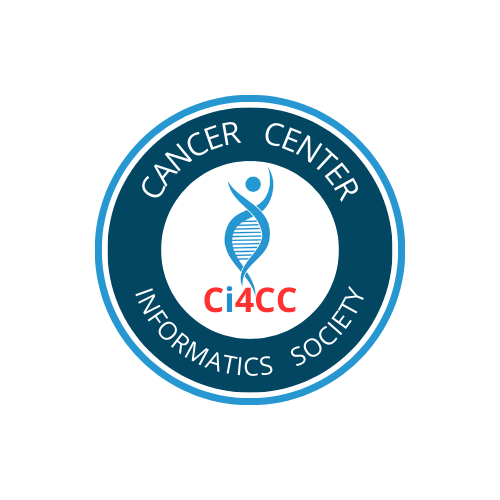An Overview: Genetic Tumor Markers for Early Detection and Current Gene Therapy Strategies
First published online February 1, 2023
Reeshan ul Quraish, Tetsuyuki Hirahata, Afraz ul Quraish, and Shahan ul Quraish
Abstract
Genomic instability is considered a fundamental factor involved in any neoplastic disease. Consequently, the genetically unstable cells contribute to intratumoral genetic heterogeneity and phenotypic diversity of cancer. These genetic alterations can be detected by several diagnostic techniques of molecular biology and the detection of alteration in genomic integrity may serve as reliable genetic molecular markers for the early detection of cancer or cancer-related abnormal changes in the body cells. These genetic molecular markers can detect cancer earlier than any other method of cancer diagnosis, once a tumor is diagnosed, then replacement or therapeutic manipulation of these cancer-related abnormal genetic changes can be possible, which leads toward effective and target-specific cancer treatment and in many cases, personalized treatment of cancer could be performed without the adverse effects of chemotherapy and radiotherapy. In this review, we describe how these genetic molecular markers can be detected and the possible ways for the application of this gene diagnosis for gene therapy that can attack cancerous cells, directly or indirectly, which lead to overall improved management and quality of life for a cancer patient.
Introduction
In our previous article, we described how liquid biopsy can be used for the detection of genetic tumor markers for the early diagnosis and prognosis of cancer.1 In this current article, we will review various nucleic acid based biomarkers for gene diagnosis and clinical methods for gene therapy to cure cancer disease. Cancer is a multi-factorial genetic disorder and a complex group of diseases in which cells grow out of control and do not die after being damaged or useless, and show immortality.2 There are many factors involved in the process of cancer generation such as; environmental factors, lifestyles, and infections, which can then lead to abnormalities in cancer-related genes at a molecular biology level. Abnormal changes in body cell molecules (genes) and their products can be detected and serve as genetic tumor biomarkers.3,4 These direct tumor biomarkers of genetic origin offer an earlier and more precise diagnosis of cancer than the conventional protein-based tumor markers.4 Another advantage of these gene-based tumor biomarkers is that they can also be used to see the prognosis of the disease if one or more of these biomarkers are monitored for changes during and after the therapy.5 In addition, molecular abnormalities in the genes or DNA offer targets (cancerous cells) that can also be utilized to develop a specific gene-drug which recognizes and attack only such abnormal targets (cancerous cells) to cure cancer without producing side effects at all or minimum.6,7 These genetic biomarkers can also be used to enhance the immune cell therapy against cancer, therefore, more effective and specific immune cells can be engineered in the laboratory by the application of gene transfer technology, consequently, these immune cells become effective cancer-attacking cells, then these engineered cells can be re-introduced into the body of a patient to attack and kill the cancer cells.7-9 In this review, we explain briefly about gene tests such as concentration and fragment length of free DNA, DNA mutation detection test, DNA methylation test, and Gene expression test for early detection, diagnosis, and prognosis of cancer, we also describe different types of gene therapies performed to either directly attack cancer cells or to induce the immune system of a cancer patient to fight cancer. In the field of oncology, molecular genetics of cancer is becoming an important tool for screening, surveillance, treatment, and management.
Future research and improvements in cancer genetics will increase the ability to precisely and cost-effectively diagnose and treat cancer patients. The purpose of this report is to present the clinical work performed in our laboratory (HIC Clinic) and to review it with the current research in this area.
Gene Test for the Early Detection of Cancer
As mentioned above, there are cancer-producing alterations in genes and these abnormalities can be detected as genetic tumor markers to diagnose the presence of cancer in the body.3,10 The progression of cancer involves multiple genetic and epigenetic events that disrupt the balance between cell division and apoptosis. Genes that affect cancer progression are known as cancer driver genes,11 which can be classified as tumor suppressor genes (TSGs) and oncogenes (OGs) based on their roles in cancer progression.12 Oncogenes are usually activated by gain-of-function mutations that stimulate cell growth and division. Whereas, tumor suppressor genes are recessive, anti-proliferative, and frequently found inactivated or mutated in cancer.13 These genes are inactivated by loss-of-function (LoF) mutations (insertions/deletions and nonsense mutations) that block tumor suppressor gene functions in inhibiting cell proliferation, promoting DNA repair, and activating cell cycle checkpoints.14
Depending upon the technology, sensitivity of the method, and analytical techniques used, these genetic cancer markers can be detected in various types of samples from a patient’s body, such as blood, urine, tissue, saliva, or a biopsy sample. Minimally invasive detection of the tumor markers by the body fluids (blood or urine) will also prove a useful method for the follow-up monitoring of the therapeutic effects or prognosis of the disease.15-17 Several gene test methods are used in Hirahata International Cancer Clinic (HIC Clinic) and we find these genetic markers are high in their sensitivity and specificity for cancer detection. Table 1 shows various gene diagnosis strategies in molecular biology to detect the nucleic acid tumor markers in a blood sample.The body content of your post goes here. To edit this text, click on it and delete this default text and start typing your own or paste your own from a different source.
Share this Article with others





